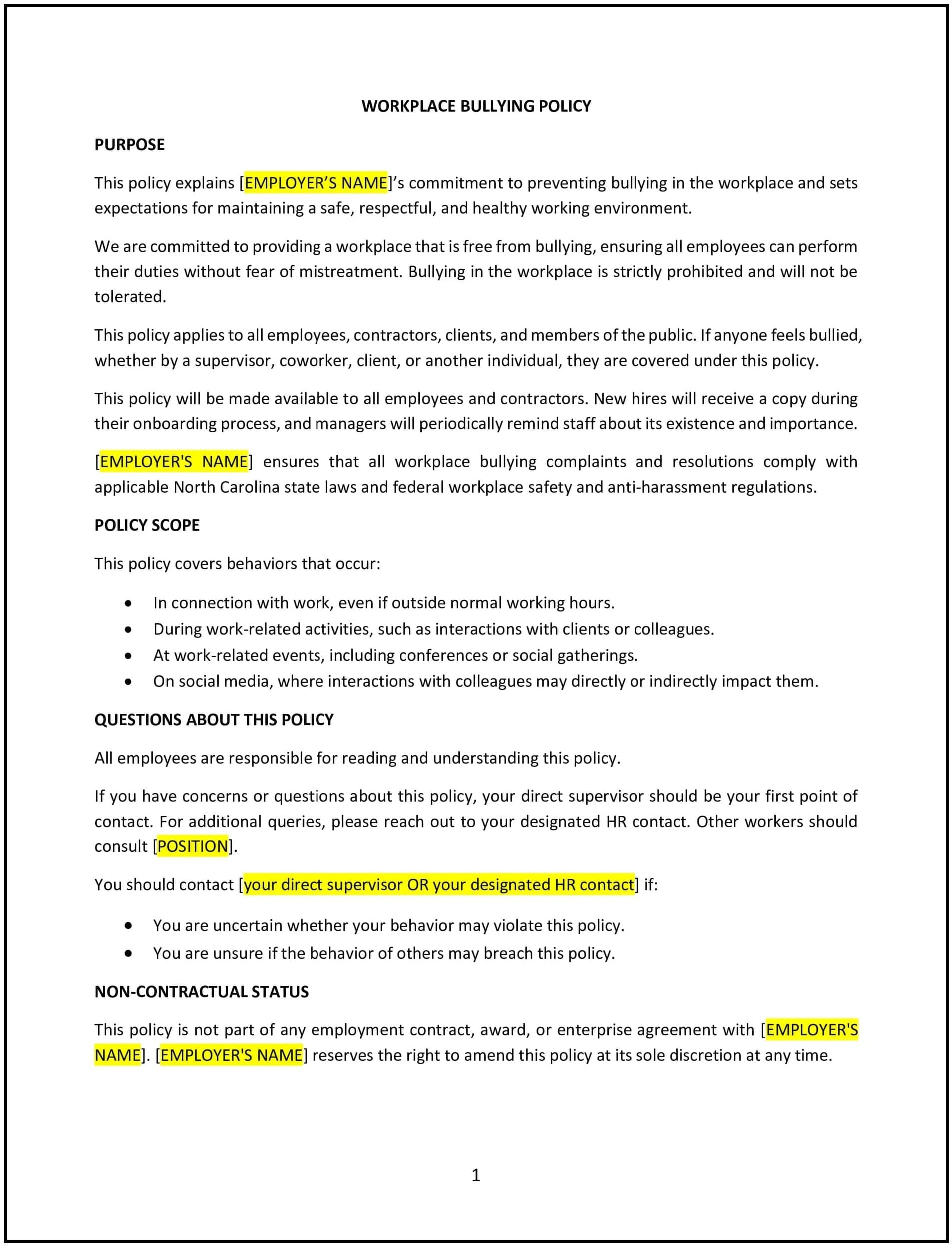Workplace bullying policy (North Carolina): Free template
Got contracts to review? While you're here for policies, let Cobrief make contract review effortless—start your free review now.

Customize this template for free
Workplace bullying policy (North Carolina)
A workplace bullying policy helps North Carolina businesses prevent and address bullying in the workplace. This policy outlines what constitutes workplace bullying, how it can be reported, and the steps the company will take to address complaints. It aims to foster a respectful and professional work environment by promoting positive behavior and addressing inappropriate conduct.
By adopting this policy, businesses can promote a healthier, more productive work environment and reduce the risk of legal issues related to workplace bullying.
How to use this workplace bullying policy (North Carolina)
- Define workplace bullying: Clearly define what constitutes bullying in the workplace, including verbal, physical, and psychological abuse or intimidation.
- Set reporting procedures: Establish clear channels for employees to report bullying, including confidentiality assurances and a non-retaliation clause to protect those who make complaints.
- Outline investigation procedures: Specify the steps the company will take to investigate reports of bullying, including interviews, documentation, and corrective actions.
- Set consequences for bullying: Clearly state the disciplinary actions that may result from bullying, ranging from counseling to termination depending on the severity of the behavior.
- Reflect North Carolina-specific considerations: Ensure the policy complies with North Carolina’s laws regarding harassment and bullying, and aligns with federal regulations like Title VII of the Civil Rights Act.
Benefits of using this workplace bullying policy (North Carolina)
This policy provides several benefits for North Carolina businesses:
- Promotes a respectful work environment: By addressing bullying behaviors, the company fosters a culture of respect and inclusivity.
- Reduces legal risk: A clear bullying policy helps protect the business from potential lawsuits related to workplace harassment and discrimination.
- Improves employee morale: Employees are more likely to be engaged and productive when they feel safe and respected at work.
- Enhances productivity: By addressing bullying, businesses can reduce the negative impact on employee performance, engagement, and teamwork.
- Supports compliance: A workplace bullying policy ensures that the company complies with North Carolina’s harassment laws and promotes a positive workplace culture.
Tips for using this workplace bullying policy (North Carolina)
- Communicate the policy clearly: Ensure that all employees understand the definition of bullying, the reporting process, and the consequences of violating the policy.
- Offer training: Provide regular training to employees and managers on how to identify, prevent, and address workplace bullying.
- Monitor and enforce: Regularly review workplace behavior and take appropriate action to address bullying complaints.
- Review the policy regularly: The policy should be reviewed annually to ensure compliance with North Carolina’s laws and the company’s evolving needs.